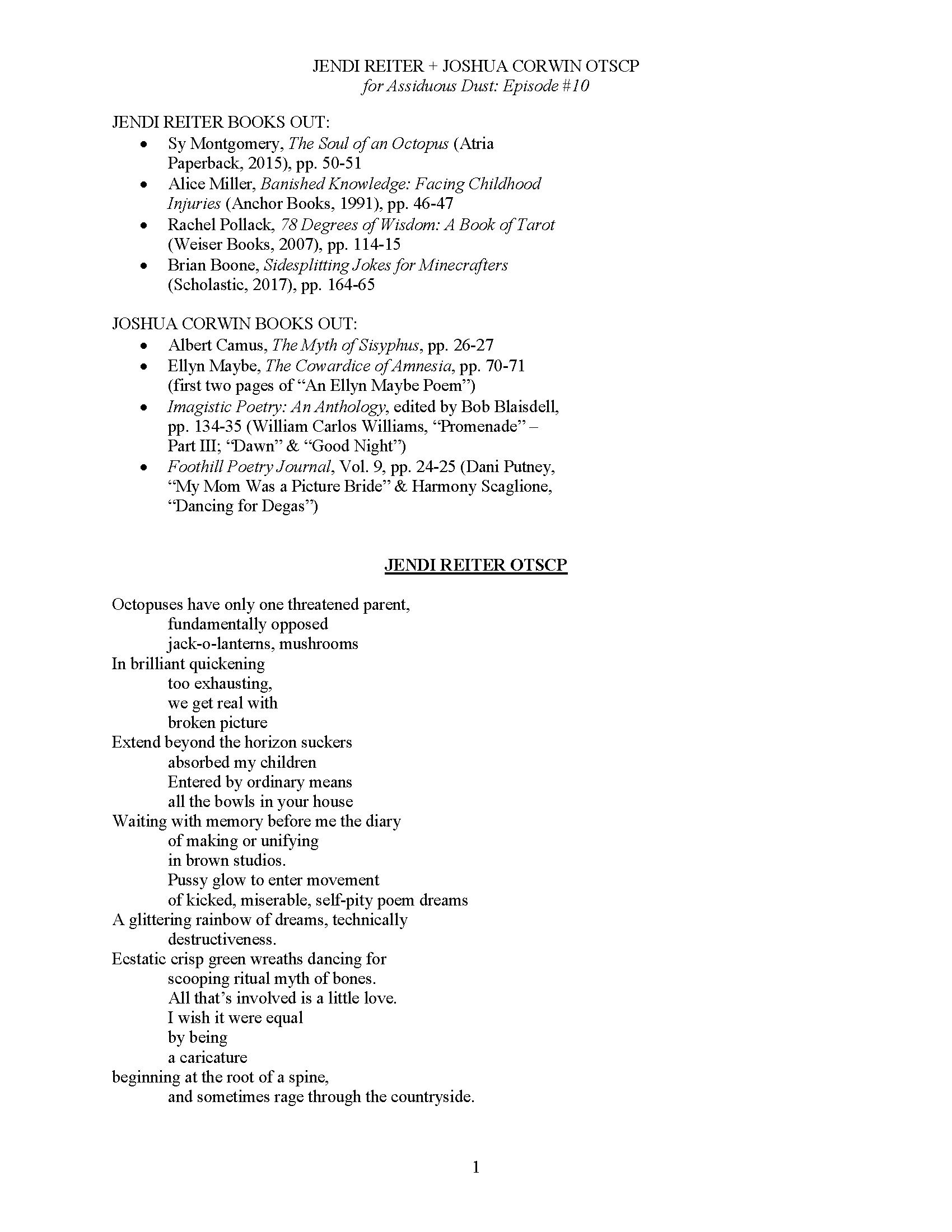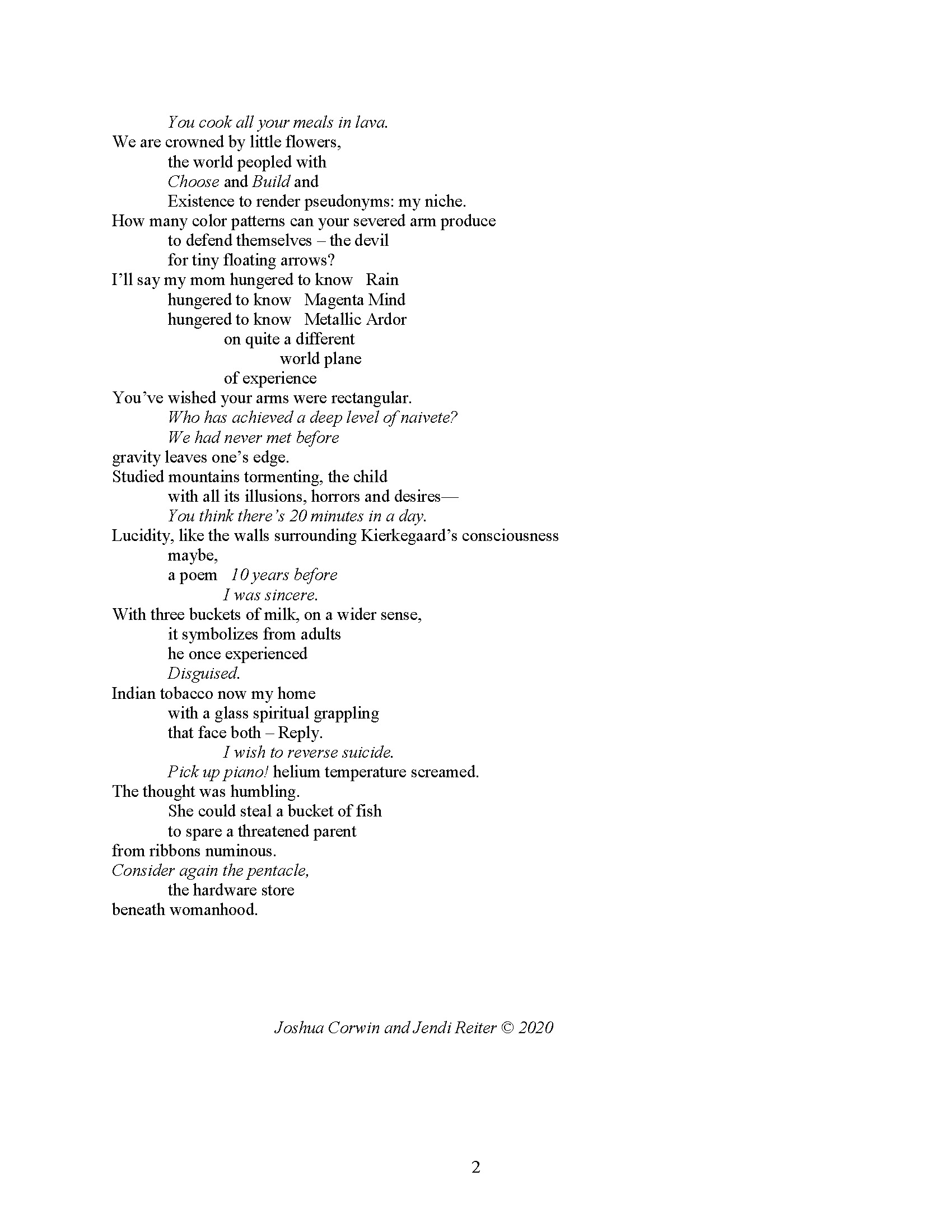Hey, it’s time for another round of “Jendi discovers the obvious!” I have a hard time recognizing hypocrisy. Until, and even after, reality slaps me in the face, I assume that everyone is trying to live up to their publicly stated ideals. To be fair, that’s the premise behind most liberal political satire, too. We like to think we’re doing something important when we laugh at the gap between Trump’s evangelical values-talk and his violent and adulterous behavior. But as Noah Berlatsky wrote in a recent Foreign Policy article, “Fascists Know How to Turn Mockery Into Power”. Their absurdity or incompetence isn’t a lapse in effectiveness, it’s a deliberate middle-finger to the very idea that truth matters in politics.
Similarly, it’s finally dawned on me that the MAGA crowd’s support for unchecked police power isn’t actually inconsistent with their hyper-individualism about gun ownership, mask-wearing, and paying taxes. It only seems contradictory if you believe the surface claim that all Americans live under the same rule of law. But the rules were never meant to apply to them. Beneath the surface, there are two Americas. Authoritarian policing is for black people; freedom of choice is for white people.
This dual consciousness drives the new HBO series “Lovecraft Country”, based on Matt Ruff’s excellent novel of the same name. “In the works of H.P. Lovecraft, or the Lovecraftian genre he inspired, the fear arises from the realization that ‘normal” never existed,’ feminist critic Sady Doyle writes in her Medium article “Racism Is America’s Lovecraftian Horror”. In cosmic horror, we are de-centered in the universe. Our comforting, orderly beliefs in human institutions and culture are shown to be irrelevant to the strange and heartless way that the world really works. For white people, this can be how it feels to wake up to structural racism. For black Americans, well, what else is new?
The genius of “Lovecraft Country” is that its black protagonists have no naiveté to lose. The traditional horror-show monsters are less scary than the small-town white sheriff, and can sometimes be redirected to save our heroes from their human persecutors. Referencing Lovecraft’s flagrant racism, Doyle concludes, “The idea that life comes down to either ignorance or despair did, after all, originate with a fairly malicious guy, one who probably could not come to consciousness without realizing that he’d hurt people, and who had reasons to prefer denial. Crumbling beneath the horrible revelation denies us the other possibility, the one Lovecraft himself seemed to fear most: Being transformed.”
Along those lines, in this 2016 piece from Nightmare Magazine, an online journal of horror fiction and criticism, Chesya Burke contends that “Horror Is…Not What You Think or Probably Wish It Is”. She questions how the boundaries of her genre have been drawn to exclude the black perspective: why is The Handmaid’s Tale considered horror, but not Toni Morrison’s Beloved?
What does it say to upcoming writers of color who don’t write about the middle class white family fighting against malevolent forces? What of the black writer that writes of welcoming those forces into their lives, as it is less horrific than living under white oppression?
…It is too often in the genre that horror is seen as an invasion of some outside force that must be exorcised in order to restore balance. When you see this, and only this as horror, you leave out those whose worlds are already defined by outside forces (e.g. the white gaze), and often use an invasion of another force as a welcomed reprieve from systemic oppression. When you have historically seen the black, the dark, the other as scary, you create an entire genre around fearing them and their cultures. Does Voodoo, loas or perhaps entire countries (Haiti) and continents (Africa) come to mind? When you define horror by white men, you not only exclude others, but you vilify them.
In another story about coming out of denial, novelist and journalist Kurt Andersen shares an excerpt from his new book Evil Geniuses: The Unmaking of America in his Atlantic article “College-Educated Professionals Are Capitalism’s Useful Idiots”. This longform piece describes how the professional class (lawyers, professors, journalists, bankers, etc.) helped wealth inequality grow out of control, starting in the 1980s. A cultural divide between upper- and lower-class white Americans was exploited by the super-rich to gut labor rights.
Most liberals, like most Americans, preferred not to regard capitalists as categorically rapacious and amoral, or to imagine the U.S. political economy as a never-ending struggle in which everyone must ultimately choose between two sides. That seemed crude. They didn’t vote for Reagan, but most didn’t hate him, certainly not at first, because in their way they shared his dreamy faith in the 1940s Frank Capra movie vision of America. And to some degree, most liberals succumbed, like most Americans, to a new form of economic nostalgia that was being revived and popularized—the notion that market forces are practically natural forces with which we dare not tinker or tamper too much. Finally, affluent liberals didn’t want to think badly of all their nice friends and neighbors and classmates who happened to work at banks or in real-estate development or in the vicinity of C-suites.
Starting in the 1970s, the Milton Friedman Doctrine, the righteous pursuit of maximum profit to the exclusion of absolutely everything else, freed and encouraged businesspeople and the rich to be rapacious and amoral without shame. Indeed, the new economic right even encouraged them to wage a class war—explicitly against (traitorous white) liberal professionals and the (black) “underclass,” more discreetly against the (white) working class they were enlisting as political allies.
At Catapult, Jess Zimmerman writes about adjusting a little too well to the Great Shutdown: “It Doesn’t Hurt, It Hurts All the Time”. She discusses how she came to understand her equanimity as traumatized numbness to the emotional load of our collective crisis. When she was finally cleared to go outside, she developed agoraphobia.
Like episodic analgesia, where the brain holds pain at bay, it was a protective nothingness, a shutdown. We are all so afraid. We are all so angry. We are all so lonely for our former lives, and mourning the collapse of the future. We are genuinely in danger, from the virus. We are genuinely being endangered, actively, by a government that sees us as disposable or worse. It’s too much: a black hole, all gravity and no light. At the same time, we are relentlessly, inescapably aware of how much worse it could be, how much worse it is, for someone, for many people. How do you let yourself feel that bolus of emotions at all? How, especially, do you feel it knowing that this is what “lucky” looks like?
…What if we thought of emotional trauma the way we do physical: not as worthy injuries and unworthy ones, but as a wide class of wounds made in different ways, whose healing is unpredictable, whose scars take different forms? It is worse to die, to be grievously ill, to lose someone you love, to lose your job and fear for your survival, to not lose your job and be forced to risk your survival every day. But it is also terrible to fear the future, to be betrayed by your leaders, to see ignorance weaponized, to have your life treated as a bargaining chip by the powerful. It is terrible to hang suspended over the pit and try not to look down. The teeth of this year grind all of us. Maybe, in seeing each other’s wounds, we can let ourselves feel our own.
In the new issue of Poets & Writers, Filipinx poet and college writing professor Rachelle Cruz proposes alternatives to the traditional writing critique workshop, which can be emotionally damaging and hostile to minority perspectives.
I’ve experienced trauma during my undergrad and graduate writing workshops, when I was asked to translate myself and cultural backgrounds as a Filipinx woman and first-generation college student, and to clarify my experiences with sexual abuse and more. I was asked to perform whiteness through “imitating” white poets. I was also asked to perform my brownness and “foreign exoticness” to a white audience. I’ve been in “dead author” workshops (also known as the traditional workshop) for my entire education. Through this model, the writer is silent while the professor, or a classmate, clumsy or emboldened by the professor’s lack of guidance, begins to eviscerate the work. Everyone else then joins in.
Today I teach my classes and workshops with a very different approach…
We read “Viet Thanh Nguyen Reveals How Writers’ Workshops Can Be Hostile,” a short, accessible, and informative history on writing workshops from a Vietnamese refugee writer’s point of view published in the New York Times in 2017. We unpack the “invisible origins” of the writing workshop—Nguyen cites Eric Bennett’s book Workshops of Empire: Stegner, Engle, and American Creative Writing During the Cold War (University of Iowa Press, 2015) in tracing it to a midcentury American fear of Communism—and how it’s marked by whiteness. We talk about how today’s writing workshop format was informed by this fear and a move toward individualism and individual art-making. We talk about how the “gruff” (read: toxic, masculine) style of communicating feedback to students was informed by the militaristic settings familiar to World War II veterans, who were the predominant workshop attendees during this time.
Then I ask my students, “So, what kind of workshop do you want?” I tell them that a workshop is a form like any other—a TV show, a film, a poem. It can have varied yet specific uses, depending on the writer and the piece. For example, do you have a rough draft of a poem or story that you feel uncertain about? Maybe you want to be inspired by other works similar to your draft. In the Gift Method of workshop, students bring in art, poems, films, and other media that speak to the craft and content of the workshop poem or story. Students share why their “gift” reminds them of the piece. Or maybe the student has a poem or story in response to queer feminist theory. The student can assign an article alongside their piece. The workshop then discusses the workshop text alongside this article, foregrounding queer feminist theory.
If you’d like to try out some of the alternate workshop forms that Cruz and her students have developed, email ed****@**.org with the subject line “Workshop Formats”.

